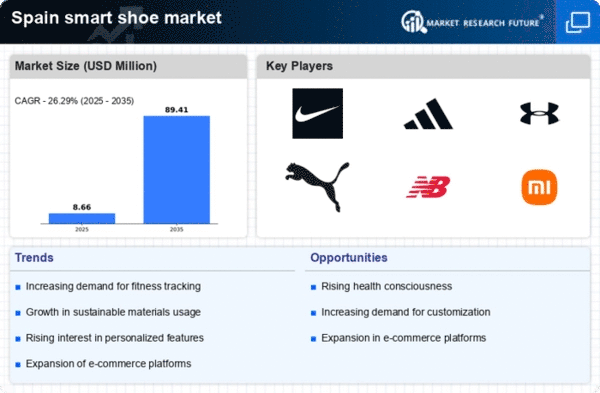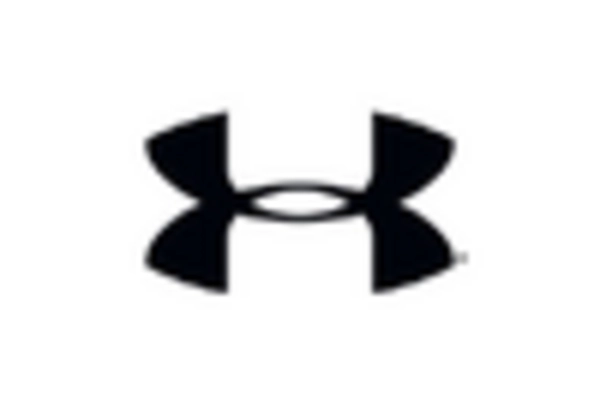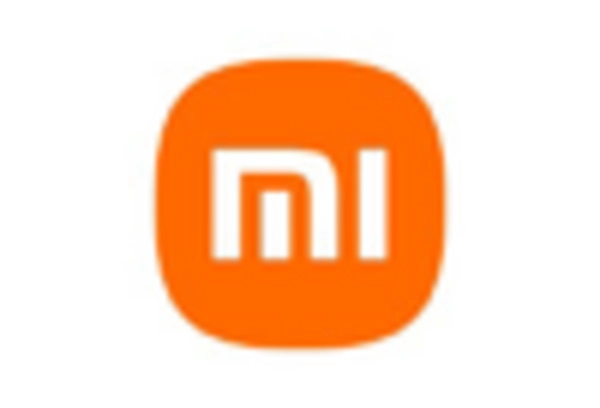Rising Disposable Income
The rise in disposable income among Spanish consumers is likely to positively impact the smart shoe market. As individuals experience increased financial flexibility, they are more inclined to invest in premium products that offer enhanced features and benefits. Smart shoes, often positioned as high-end items, cater to this growing consumer segment. Recent statistics indicate that disposable income in Spain has risen by approximately 5% over the past year, suggesting a favorable environment for luxury and technologically advanced products. This trend may lead to a greater acceptance of smart shoes as a viable option for everyday wear, thereby expanding the market. The smart shoe market stands to gain from this economic shift, as consumers prioritize quality and innovation in their purchasing decisions.
Health and Fitness Awareness
The increasing awareness of health and fitness among the Spanish population appears to be a significant driver for the smart shoe market. As individuals become more health-conscious, they seek innovative solutions to monitor their physical activity. Smart shoes, equipped with sensors and tracking technology, provide real-time data on steps taken, calories burned, and overall fitness levels. This trend is particularly evident among younger demographics, who are more inclined to adopt technology in their fitness routines. According to recent data, the fitness app market in Spain is projected to grow by 15% annually, indicating a rising interest in health-related technologies. Consequently, the smart shoe market is likely to benefit from this heightened focus on personal health and fitness, as consumers increasingly integrate smart footwear into their daily lives.
Urbanization and Lifestyle Changes
Urbanization in Spain is contributing to lifestyle changes that favor the adoption of smart shoes. As more individuals move to urban areas, they often seek convenient and efficient solutions for their daily commutes and active lifestyles. Smart shoes, which offer features such as navigation assistance and fitness tracking, align well with the needs of urban dwellers. The urban population in Spain is projected to reach 80% by 2030, indicating a growing market for products that enhance mobility and health. Additionally, the increasing prevalence of outdoor activities and sports in urban settings further supports the demand for smart footwear. The smart shoe market is likely to thrive as urbanization continues to shape consumer preferences and behaviors.
Technological Advancements in Footwear
Technological advancements in footwear manufacturing are driving innovation within the smart shoe market. The integration of advanced materials and smart technology into shoe design enhances performance and user experience. For instance, features such as adaptive cushioning, temperature regulation, and integrated fitness tracking are becoming more prevalent. In Spain, the footwear industry has seen a surge in investment in research and development, with companies allocating approximately 10% of their budgets to innovation. This commitment to technology not only improves product offerings but also attracts tech-savvy consumers who are eager to embrace the latest advancements. As a result, the smart shoe market is likely to expand, appealing to a broader audience seeking both functionality and style in their footwear.
Environmental Concerns and Eco-Friendly Products
Environmental concerns are becoming increasingly prominent among Spanish consumers, driving demand for eco-friendly products, including smart shoes. As sustainability becomes a priority, consumers are more likely to choose products that align with their values. The smart shoe market is responding to this trend by incorporating sustainable materials and production methods. Recent surveys indicate that approximately 70% of Spanish consumers are willing to pay a premium for environmentally friendly products. This shift in consumer behavior suggests a potential growth area for the smart shoe market, as brands that prioritize sustainability may attract a loyal customer base. The smart shoe market is thus positioned to benefit from the rising demand for eco-conscious footwear solutions.
















